I am trying to bond a rubber coupler to a steel flange...I have the surface area, but so far the glues I have tried have been too weak to pass muster. I know they do it with motor and transmission mounts to great effect, where the rubber fails before the bond...how do I duplicate that? I have tried liquid nails(I know, specifically NOT reccomended for plastics, but had a tube, so thought I would try), I have used a 2-part Loctite epoxy specifically meant to bond plastics and metal...both failed just about as easy. Anyone have any ideas?
Someone on here recently pointed me to http://thistothat.com/, this looks like it'd be worth querying... I don't know how current is is, though.
Someone else here has said that 3m's customer service email is fairly responsive to things like this, but know that you're going to be getting back an industrial recommendation most likely, so you may need an applicator/mixer in addition to the adhesive which could be expensive itself.

Wally
MegaDork
2/6/20 9:21 a.m.
How about a windshield urethane adhesive? They seem to hold well to everything.
I use permabond 731 to glue tire studs in,after 3 seasons of smacking the ice and being twisted in all kinds of directions most studs have rubber stuck to them when I remove them.

EvanB
MegaDork
2/6/20 9:29 a.m.

Mr_Asa
Reader
2/6/20 9:57 a.m.
Knowing the usage might help?
Generally the engine mounts and such I've seen they cast the rubber in and around the metal so it is the actual rubber forming the bond, not a third component. Depending on what you're doing and using, you might look at fashioning a mold and injecting something that will cure (window urethane, a two part silicone, other stuff)

pirate
HalfDork
2/6/20 10:07 a.m.
I have not used to bond rubber but 3M make a product called Marine Adhesive and Sealant 5200. Basically don't use it if there is any chance you might want to disassemble in the future. I have used on boats for fiberglass to rub rail (flexible plastic type material) with good results. Have used to bond metals together. Dries to a very tough flexible bond that's impossible to take apart without destroying components.
Loctite 480 ($30 for tiny bottle from McMaster), expensive, short shelf life (store in fridge), but works really well. It is a toughened superglue (neoprene in the mix). I first used it based on a recommendation for it helping bond tire studs to tires, which is what I used it for. I have used it in several applications professionally since my first exposure to it and I am still impressed by it. The rubber tears when you pull it off rather than coming unstuck.
Engine mounts have the rubber vulcanized in place; the metal part went into the mold. They are not really glued.
If you want more of an epoxy type, McMaster->Adhesives->Metal to Rubber.
Matthew
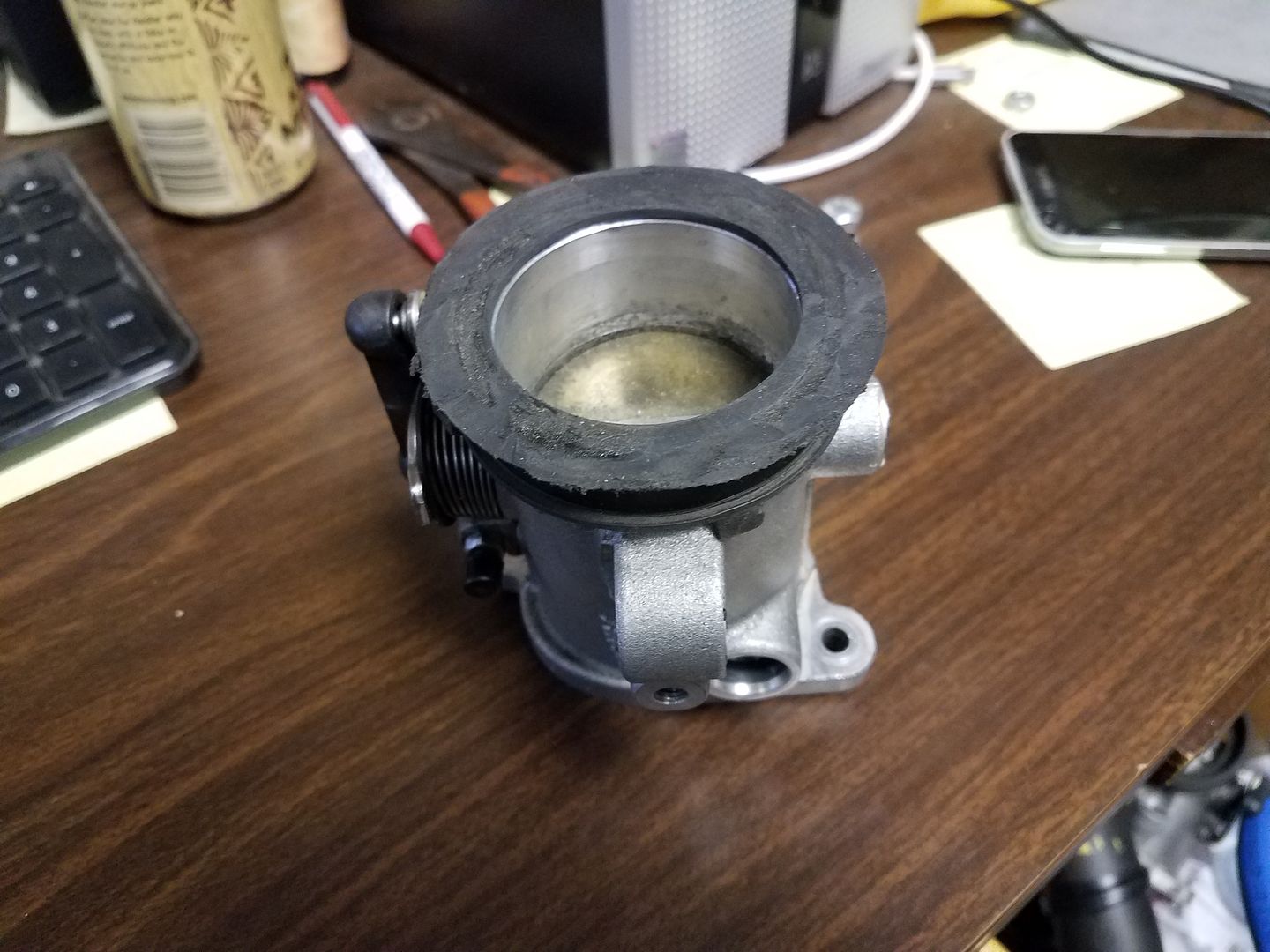
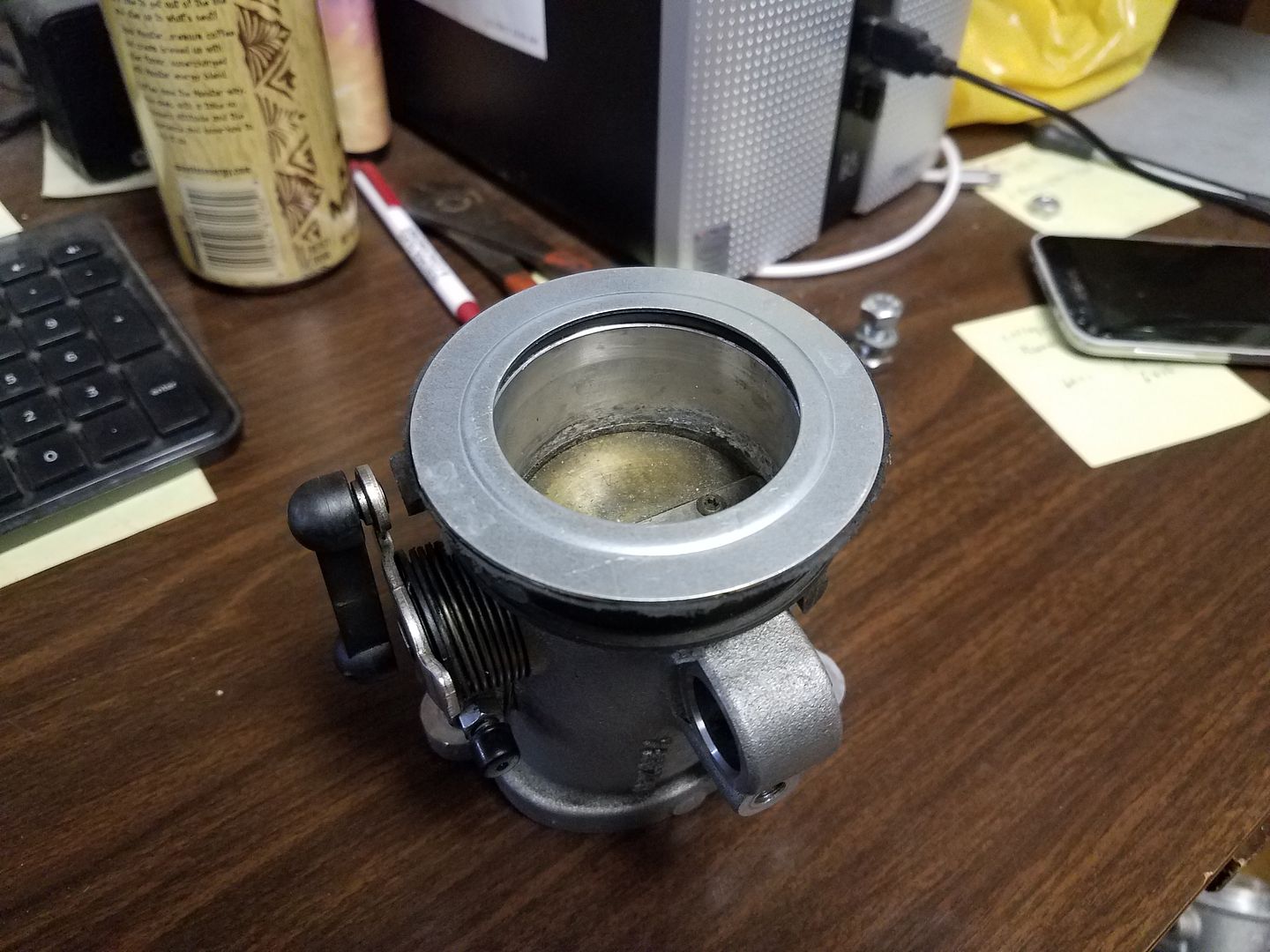
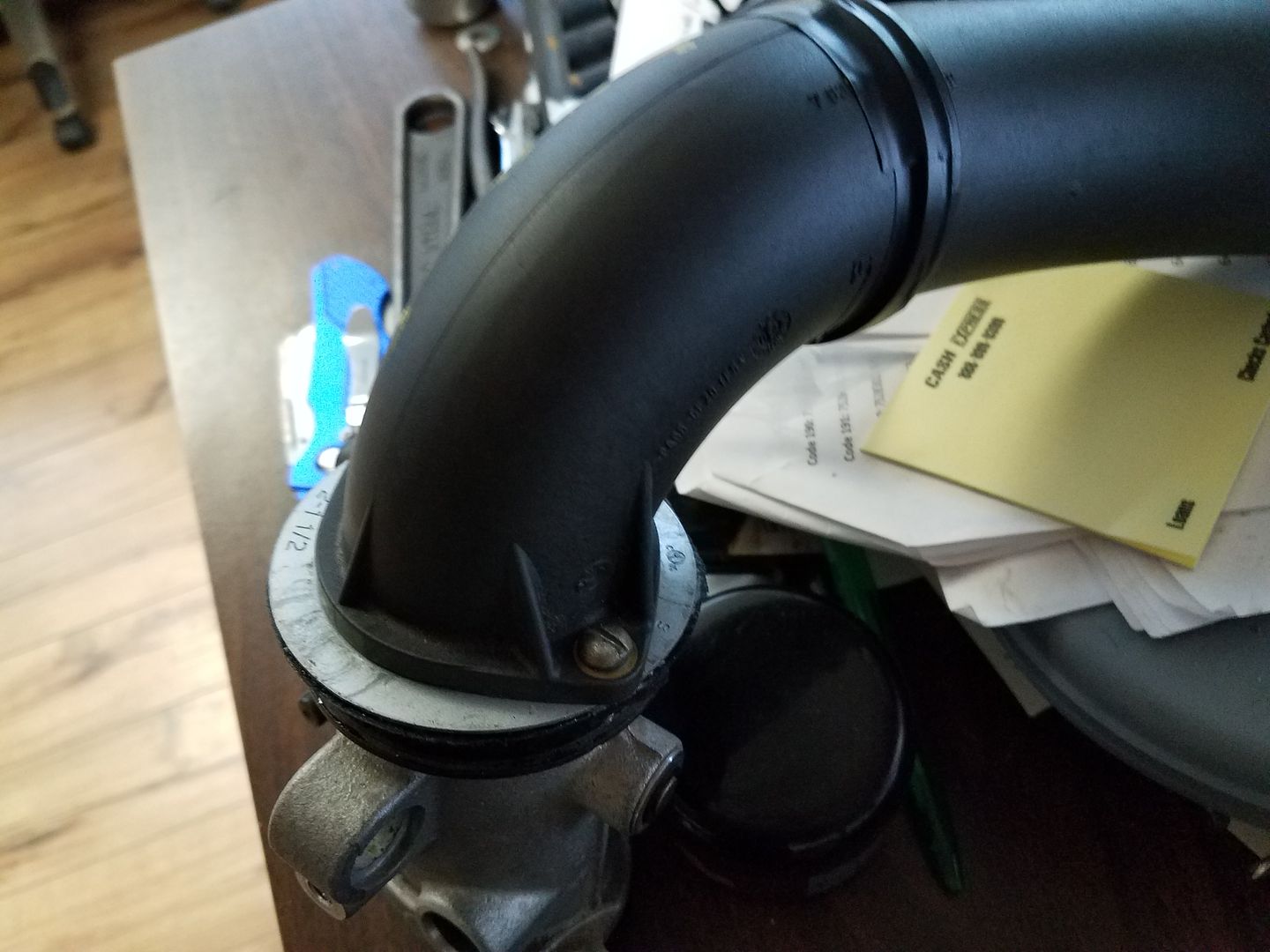
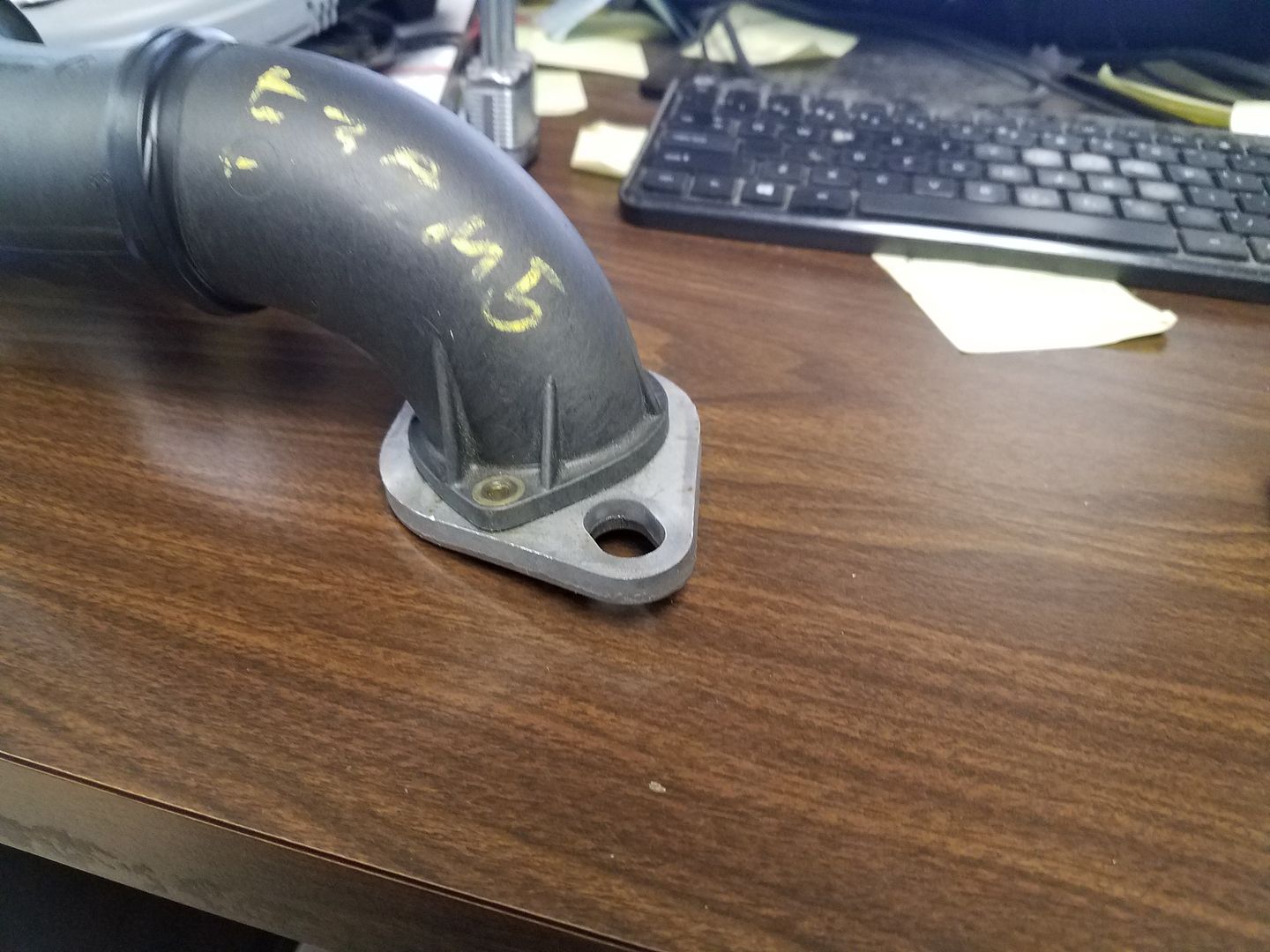
Just for reference, what I am using it for is for the throttle body couplers...I need to be able to bolt and unbolt the airbox I am building from above(access to the couplers from the side will be virtually impossible, and rather than welding flanges on....making a psuedo flange of this type is better because it allows for adjustable clocking of the air horns. So what I need is something that will stand up to vibration(probably needs to be flexible) but will hold up to my twist and peel test(it fails if I can twist or peel them apart by hand with little effort). I am on the fence between using the "reducing washers" and the thicker exhaust flanges as the flange for this task...the exhaust flange is certainly a better option, has enough material to be able to tap for bolts instead of just use screws, but using it costs me 5/16" more hood clearance(chances are I will use them anyway)
Ive used Ultra Black RTV with decent success.
Second for the recommendation of Marine 5200. Marine use products have to be very tough to survive in that sort of environment.
5200 is even used by boat manufacturers for parts of the hull assembly, where a failure would be absolutely catastrophic.
Floating Doc said:
Second for the recommendation of Marine 5200. Marine use products have to be very tough to survive in that sort of environment.
5200 is even used by boat manufacturers for parts of the hull assembly, where a failure would be absolutely catastrophic.
I ordered a small tube off of amazon(shouldn't need much for this) so its the next one I am trying. In the end, its the engine vibration that will be the deciding factor I guess. Its not like it has to last forever, but I would like to get 30-40k...I can deal with a maintenance schedule like that. If the marine stuff doesn't work I will try some of the other suggestions.
For things like steel belted radials and motor mounts the rubber is basically applied in raw form and vulcanized to the steel. The rubber mixture is formulated to bond to the steel during this process. Back in the early days of steel belted radials Michelin figured out how to do it first. US lagged way behind. Hence the early to mid 70's Firestone 500's flying apart. Uniroyal and Goodyear as well. Goodrich figured it out first for American manufacturers IIRC.
I know this is not helping your problem of getting an after the fact chemical bond of cured rubber to steel.

Mr_Asa
Reader
2/7/20 10:26 a.m.
It may be easier to bond rubber to rubber. If so, you could put the first layer of rubber down and fasten it down with rivets or some other mechanical method, then bond another piece of rubber to the rubber that's fastened down.
I'm in the rubber business. You'd think I'd be all over this.

Rubber to rubber we use a lot of this.

pliobond 25 This is what it is made for. Warning it stinks nasty but it great for coating aluminum heads and cylinder sealed with Copper head gaskets and rubber manifolds

Mndsm
MegaDork
2/7/20 9:13 p.m.
3m 5200 marine adhesive. Will stick anything to anything. Forever. Edit- thirded. Apparently
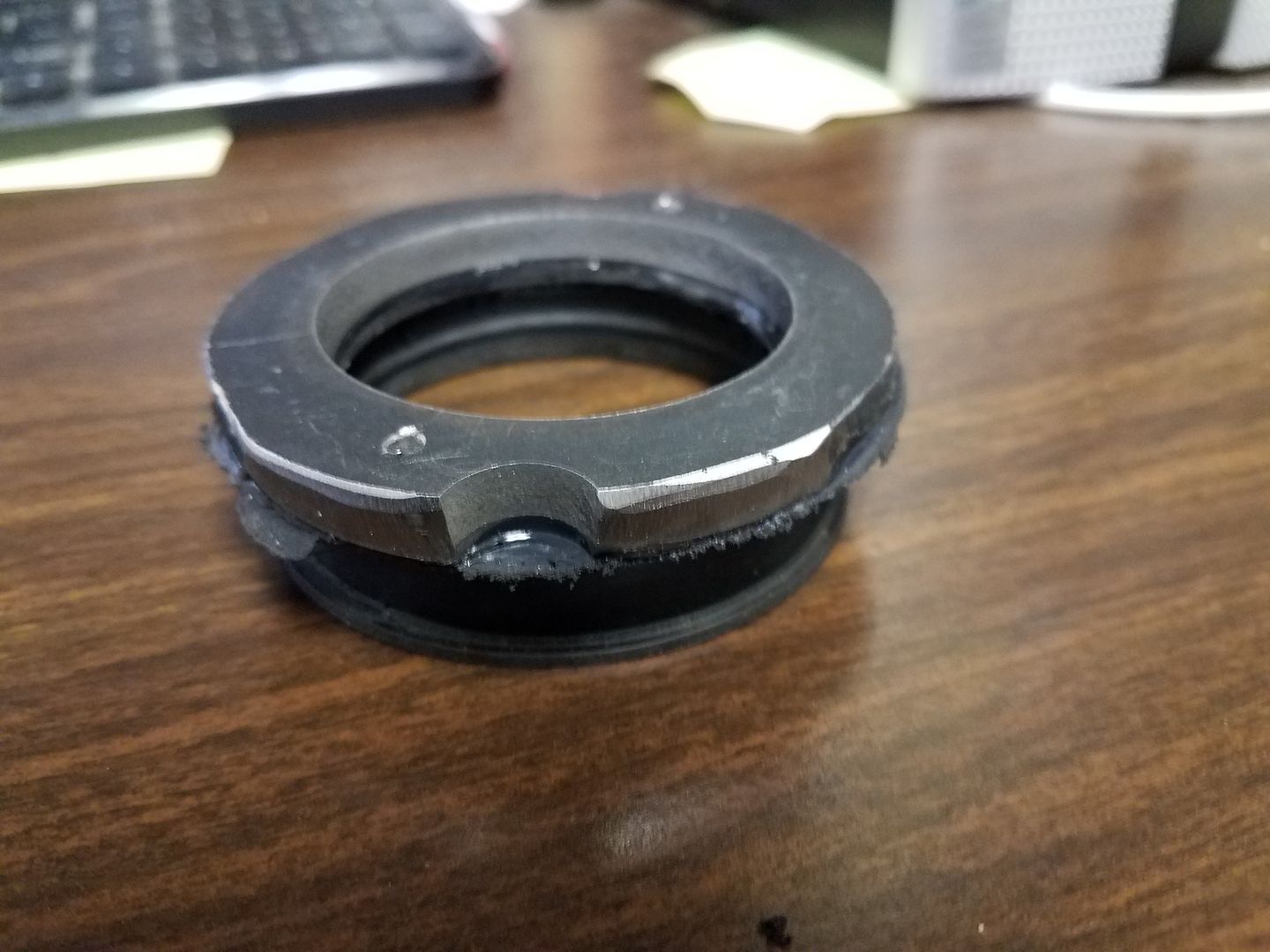
Update to this thread...I used the 3M Marine 5200 about a week ago...that 7 day cure time is a lot of fun...but it seems to have done the trick. I could probably pry this apart if I really made an effort...but it would take a LOT of force...it already holds 10 times better than the other glues I have tried...and will certainly work for the application, as long as it hold up to the moderate heat its exposed to.
I know I'm a little late, but flooring adhesives work pretty well. Get a contact cement for VCT. It's designed to hold non-porous to non-porous.

Vigo
MegaDork
2/17/20 1:43 p.m.
Glad to hear the 5200 worked out. I bought a tube based on this thread, stuck it in my toolbox. I want to use it, but i don't want to need to!!

Mndsm
MegaDork
2/17/20 5:02 p.m.
I still sell it all the time "how permanent you want this?"














































